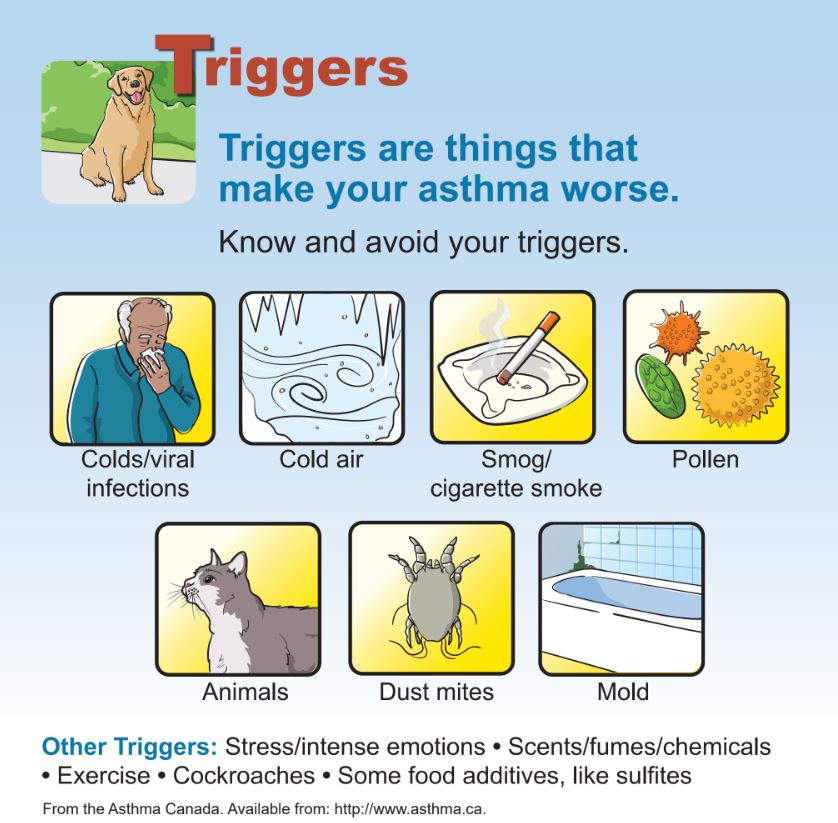Introduction
What is asthma?
A chronic lung disorder that causes the airways to become tightened, narrowed, and swollen.
The airways are twitchy when exposed to triggers such as cold air, exercise or allergens.
Those with controlled asthma will be able to live an active, normal life, doing the things they like to do, including exercising.
Do I have asthma?
Some common symptoms of asthma may include:
- shortness of breath
- cough
- wheeze
- chest tightness
It is important to ensure the proper diagnosis of asthma. If asthma is suspected see your doctor to review your symptoms, your medical history and your family history, and to schedule a lung function test (breathing test).


What triggers my asthma?
Common asthma triggers include:
- allergens such as: animal dander, pollen
- tobacco smoke
- air pollutants
- strong odours such as sprays, perfume, paint
- certain drugs: Aspirin, ibuprofen
- strong emotions such as crying, laughing
- certain weather conditions
- food additives/preservatives
- cold, dry air
- physical activity/exercise
- infections/colds/viruses
- mold
Managing my Asthma
Well managed asthma includes:
- meeting with a Certified Respiratory Educator and learn more about your asthma (Referral Form).
- taking your prescribed medications regularly.
- avoiding your asthma triggers.
- following your Asthma Action Plan.
- Remember, the best asthma control is when you have…
- no daytime or nighttime asthma symptoms.
- no need for reliever medication.
- no limitations to daily activities.
- no missing school or work due to asthma.
- normal lung function (breathing tests).
If you have any symptoms of cough, wheeze, chest tightness or shortness of breath your asthma is not under control.


How can we help?
Our team can:
- accept referrals from you or your healthcare providers (including doctors, pharmacists, nurse practitioners, and other allied health professionals).
- provide asthma education led by one of our Certified Respiratory Educators.
- help with the diagnosis of asthma, achieve control of symptoms and then maintain good control.
- educate on asthma medications and demonstrate proper asthma inhaler technique, provide patient self-management guidance.
- provide consistent follow up if necessary.